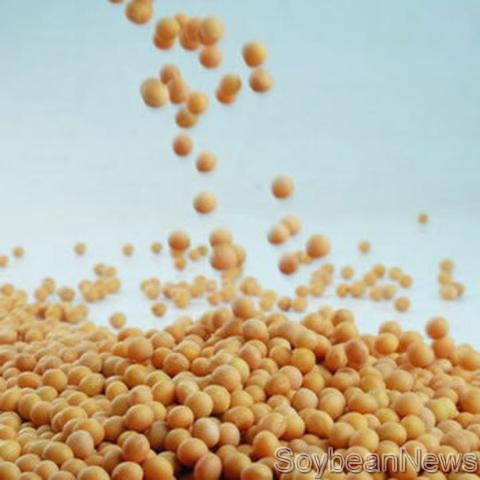Friday, February 25, 2011
Corn, Soybeans Surge by Chicago Exchange Limit; Wheat Jumps
 Feb. 25 (Bloomberg) -- Corn and soybean futures surged the most allowed by the Chicago Board of Trade and wheat climbed more than 4 percent on bets that increasing export demand for U.S. crops will tighten global supplies.
Feb. 25 (Bloomberg) -- Corn and soybean futures surged the most allowed by the Chicago Board of Trade and wheat climbed more than 4 percent on bets that increasing export demand for U.S. crops will tighten global supplies.
U.S. exporters reported the biggest week of corn sales since the marketing year began Sept. 1, and wheat sales in the week ended Feb. 17 were 67 percent higher than the prior four- week average, the U.S. Department of Agriculture said today. Exporters sold 165,000 metric tons of soybeans to China for delivery after Sept. 1, the USDA also said.
“Export sales were strong for corn and wheat last week, and China buying more soybeans overnight is a positive indication of increasing demand,” said Mark Schultz, the chief analyst for Northstar Commodity Investment Co. in Minneapolis. “Domestic livestock and ethanol producers also increased purchases.”
Corn futures for May delivery rose 28.75 cents, or 4.1 percent, to $7.2525 a bushel at 1:05 p.m. on the CBOT, heading for the biggest gain since Oct. 20. Earlier, the most-active contract jumped by the exchange limit of 30 cents.
Soybean futures for May delivery gained 43.75 cents, or 3.3 percent, to $13.73 a bushel. Earlier, the price surged by the limit of 70 cents.
Wheat futures for May delivery jumped 32 cents, or 4.1 percent, to $8.145 a bushel. Prices in Kansas City and Minneapolis also jumped.
Agriculture Rally
Supply concerns have fueled rallies in agricultural markets this year. Cotton has more than doubled since the end of June, and sugar prices have gained almost 80 percent, increasing competition among crops as the world’s farmers seek to plant more grain and oilseeds, Schultz said.
Corn and soybeans inventories will stay tight in the U.S., the world’s largest grower and exporter, Joe Glauber, the USDA’S chief economist, said yesterday. Higher demand for livestock feed and ethanol will limit gains in inventories, he said.
“Even with additional supplies expected this year, it is likely that the tight stocks-to-use situation will not be entirely mitigated over the course of one or even two growing seasons,” Glauber said. “It points to the fierce competition for acreage this spring.”
Global food costs rose to a record last month after jumping 25 percent in 2010, according to the United Nations. Rising demand also is helping to boost net-farm income in the U.S. by 20 percent this year to a record $94.7 billion, the USDA said earlier this month.
‘Significant Upside’
In the U.S., “even with a bump up in planted acreage, you won’t be able to increase inventories to more comfortable levels,” said Shawn McCambridge, the senior grain analyst at Prudential Bache Commodities LLC in Chicago. “The USDA wants to warn people it will be very difficult to rebuild inventories this year. If there’s a weather problem, there will be significant upside potential in prices.”
Wheat rose as dry weather may curb production in the U.S., the biggest exporter.
Dry weather in the past 90 days has hurt crops in the southern Great Plains, where hard-winter wheat is grown, Glauber said yesterday.
“Supplies will remain tight,” said Justine White, an analyst at VM Group in London. “Inventories remain low following various weather upsets in growing regions.”
Corn is the biggest U.S. crop, valued at $66.7 billion in 2010, followed by soybeans at $38.9 billion, government data show. Wheat was the fourth-biggest at $13 billion, behind hay.

This post was written by: HaMienHoang (admin)
Click on PayPal buttons below to donate money to HaMienHoang:
Follow HaMienHoang on Twitter














0 Responses to “Corn, Soybeans Surge by Chicago Exchange Limit; Wheat Jumps”
Post a Comment